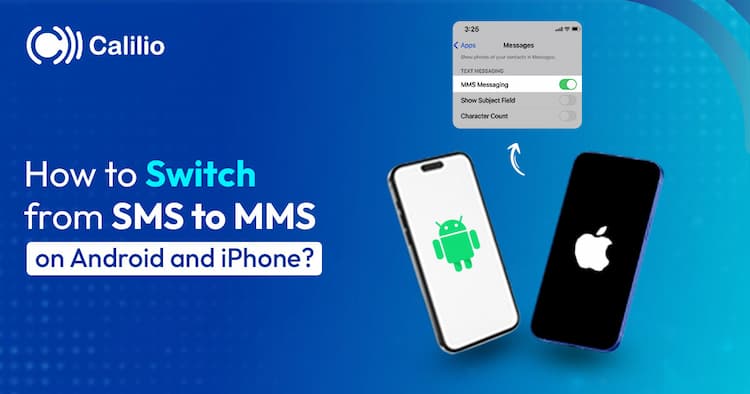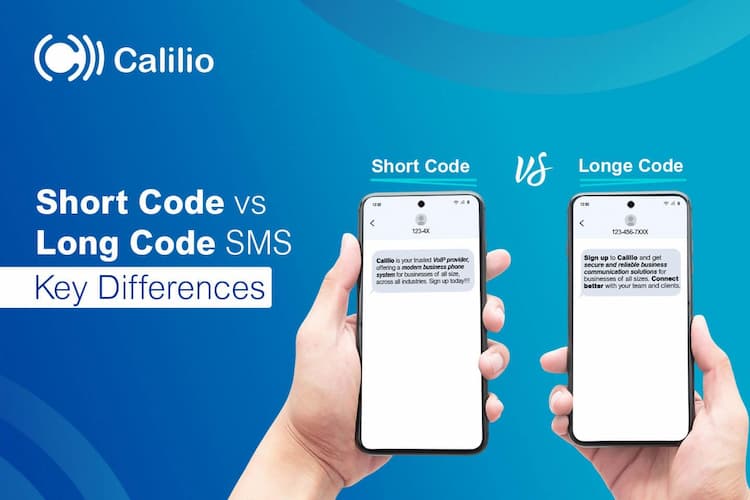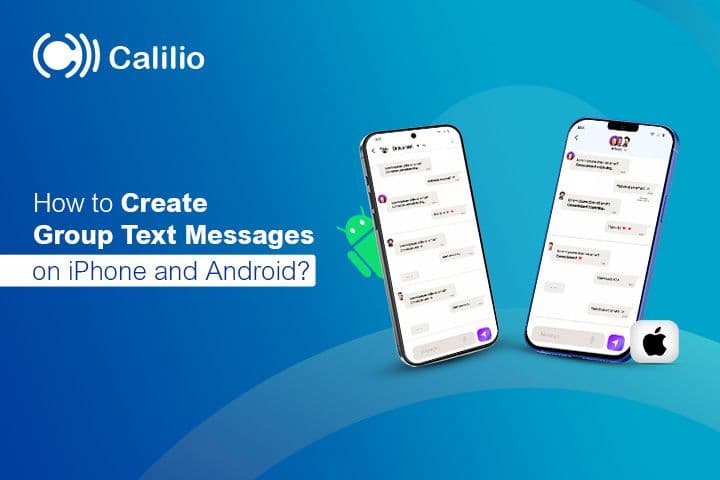Expert Tips for Answering Phone Calls Professionally

The saying, "First impression is the last impression," comes true when answering business calls. Imagine a potential customer calls your business, and if you don’t answer the phone properly, they could walk away dissatisfied. It can be a significant loss for your business.
That’s why it's important to answer a phone call professionally by offering a polite greeting, speaking confidently, and maintaining a positive tone.
In this post, we'll discuss why effective phone communication matters, provide practical tips for doing it right, and suggest tools to enhance your communication further.
Key Highlights:
- Answering phone calls professionally creates a positive impression and strengthens customer trust.
- To improve your call management skills, focus on clear communication, confidence, and active listening.
- Avoid using casual slang or informal language during professional conversations.
- Invest in quality communication equipment like noise-canceling headsets to ensure sound clarity.
Why Answer a Phone Call In a Professional Way?
Answering phone calls professionally improves a company’s brand image, enhances customer satisfaction, and opens up additional sales opportunities.

- Positive Impression: How you answer a call sets the tone for the entire conversation. A polite phone response ensures that callers feel valued and respected when they interact with you.
- Professional Image: Customers trust someone who sounds competent and attentive. A well-handled phone call reflects the professionalism and legitimacy of your company/brand.
- Builds Strong Relationships: A warm tone can turn regular calls into meaningful interactions, strengthening trust and loyalty. Moreover, timely and respectful responses show that you value your clients. It helps to build a healthy relationship with clients.
- Increases Sales Opportunities: Answering phone calls professionally creates potential sales opportunities. Whether it is a customer query or a sales call, how you respond can lead to opportunities in the coming days.
- Customer Satisfaction: When you professionally answer the calls, addressing the customer's needs, it makes your customer happy.
Best Ways to Answer a Phone Call Professionally with Examples
To answer phone calls professionally, pick up the call within the first three rings, start with proper greetings, use a positive tone, address the caller’s concern, and end the call delicately.
1. Be Prepared
Before picking up a call, ensure you’re in a quiet environment with minimal distractions. Furthermore, gather necessary information, such as customer records, product details, or pricing, to provide accurate answers without hesitation.
2. Answer Phones by the Third Ring
A prompt response shows that you value the caller’s time. Try to answer within three rings; the first ring serves as a notification, the second ring gives you a moment to prepare, and the third ring is the time to answer.
If you can't answer in time, send the call to voicemail. This allows the caller to leave a message, and you can get back to them as soon as possible.
3. Start with a Warm Greeting and Introduce Yourself
Always begin with a warm, polite greeting when answering a professional phone call to make the caller feel welcome and comfortable. Your voice should be clear, confident, and welcoming.
After a proper greeting, introduce yourself and your company to inform the callers have reached the right person or department.
Example: "Good morning! Thank you for calling [Company Name]. This is [Your Name]. How can I assist you?"
4. Maintain a Calm and Positive Tone
Your vocal tone conveys your attitude and respectability. Maintain a calm and positive tone throughout the conversation, even if the caller is upset. This helps to engage the customer throughout the conversation.
Example: Let’s say a caller is frustrated about a delayed shipment, but you do not know the reason for the delay. Instead of saying “I don’t know,” respond with empathy:
"I understand how frustrating this must be, and I truly apologize for the delay. Let me review your issue. We’ll promptly look after it."
5. Listen Actively and Acknowledge Caller’s Concerns
When answering phone calls professionally, active listening is crucial to understand your callers. Pay close attention to their needs and acknowledge their concerns before responding. This confirms you understand their issue and reassures them that you are taking the matter seriously.
Example: Let’s say a caller did not receive his order on time and is angry about it. Rather than jumping straight into finding a solution, show that you are listening and empathetic first:
"I see, so you placed an order last week and haven’t received tracking information yet. Let me check this right now."
6. Ask for Permission Before Taking Any Action
During the call, if you need to place the callers on hold or transfer them to another person/department, always ask for permission. It helps to improve customer experience and reduce call drops.
Example: If you need to transfer the caller to another department for more specialized assistance, you can say:
"I’ll need to transfer you to our technical team for further assistance. May I place you on hold for a moment while I connect you?"
7. Summarize the Main Points
Before ending the business call, briefly summarize the key points from the conversation. This ensures the caller is clear, especially when the conversation is regarding complex issues.
Furthermore, clarifying next steps, timelines, and follow-up actions reassures the caller that you’re genuinely focused on resolving their issues.
Example: Let’s say a customer is following up on an order. After addressing their concern, summarize the next steps like this:
"To confirm, your order is now scheduled for delivery by Friday. You will receive an email with tracking information once it ships. Please feel free to contact us if you have any more questions."
8. End Calls Gracefully
When answering professional calls, it’s important to close a call gracefully as you started it. Before ending the call, appreciate the caller for contacting your company. A well-structured closing adds a personal touch and makes the caller feel appreciated.
Example: Once all concerns have been addressed, and you’re ready to wrap up the call, you can say:
"Thank you for calling [Company Name]. We appreciate your time. If you have any more questions, feel free to reach out. Have a wonderful day!"
Common Things to Avoid While Answering Professional Calls
When answering phone calls professionally, avoid using casual language or slang, rushing to end the call, speaking too much or too little, and eating during the call.

- Using Slang
Avoid using slang or casual expressions during business calls. Such informal language can make business communication sound unprofessional and detract from the seriousness of the conversation.
- Eating During the Call
Never eat or snack while on a call. It can be distracting, unprofessional, and make the conversation feel less focused. Always give the caller your full attention.
- Poor Communication
Be clear and concise. Avoid using excessive technical terms or speaking unclearly, as this can lead to confusion or misunderstandings. Ensure your communication is professional and easy to understand.
- Speaking Too Slowly or Quickly
Speaking too slowly can make you seem unsure, while speaking too quickly can make it difficult for the caller to understand you. Aim for a steady and natural pace.
- Taking Too Long to Pick Up the Call
Answer the call quickly. Taking too long to pick up can make the caller feel ignored and unimportant. Responding quickly shows that you value their time.
- Rushing to End the Call
Avoid ending the call immediately. Give the caller time to fully express their concerns, and ensure all their needs are addressed before wrapping up the conversation.
Other Helpful Tips to Consider to Answer a Phone Call Professionally
Use a business phone system with advanced call management features and invest in high-quality headsets and microphones to ensure clear, efficient calls.
Leverage Phone System with Advanced Call Management Features
Upgrade to a business phone system with advanced telephony features to answer calls professionally and efficiently. Automated voice greetings, for example, allow you to greet callers with a clear and professional message, setting the right tone from the start. Likewise, a phone system with Call-on-hold music can also enhance the caller experience when you need to keep the caller on hold.
Get a Business Phone System for Smoother, More Efficient Communication!
Use Quality Headsets and Microphones
Invest in qualitative headsets and microphones. High-quality headsets and microphones capture your voice clearly without distortion. Consider using a microphone with noise-cancellation features to filter out unnecessary noise from the surroundings.
Frequently Asked Questions
How can I improve my phone answering skills?
To improve your phone answering skills, focus on clarity, be confident, and maintain a positive tone. Also, practice professional greetings and keep all the necessary information ready before picking up a call.
How can I handle difficult or upset callers professionally?
To handle difficult or upset callers professionally, stay calm, listen actively, and offer solutions empathetically during a conversation. You may also want to avoid interrupting while the caller speaks and assure them that you’re working on their issues.
Are there any differences between answering personal and professional calls?
Yes, there are differences. Personal calls typically involve a more relaxed and informal tone, focusing on personal matters. Conversely, professional calls require a more formal greeting tone, concentrating on business objectives.
Latest Posts
From the blog
The latest news, technologies, and resources from our team.





